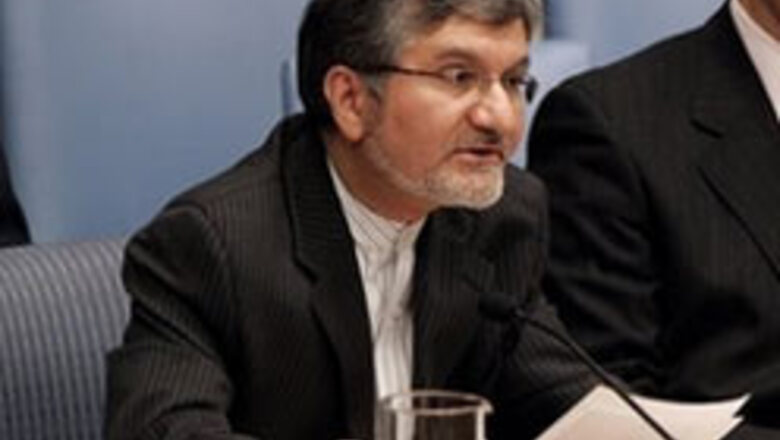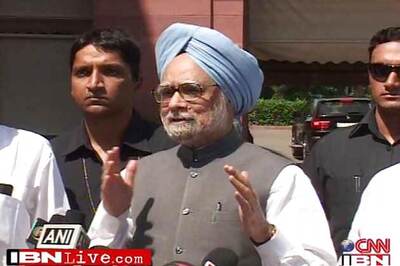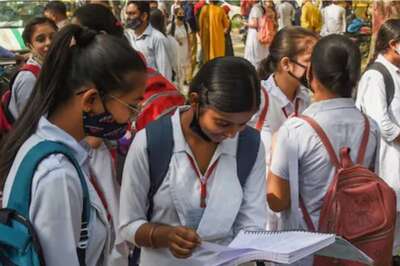
views
United Nations: Iran accused the United States, Britain and Israel of making "baseless allegations" about its nuclear ambitions, insisting that it has always considered weapons of mass destruction to be "inhumane, immoral and illegal."
Iran's deputy UN ambassador Mehdi Danesh Yazdi told the UN Security Council on Friday that his country has an "inalienable right" to develop nuclear technology for peaceful purposes and would not "give in to the pressures emanating from groundless and unsubstantiated allegations and ulterior political motives."
Iran was a last-minute addition to the list of countries speaking at a daylong council meeting on implementation of a 2004 resolution requiring all UN member states to pass laws to keep nuclear, chemical and biological weapons out of the hands of terrorists and black marketeers.
The meeting took place a day after the International Atomic Energy Agency reported that Iran had ignored a council ultimatum to freeze uranium enrichment — a possible pathway to nuclear arms — and had instead expanded its program.
Iran's president and a former president accused the West on Friday of "bullying" Tehran through ultimatums and threats of new sanctions.
Divisions had emerged within the Iranian leadership over President Mahmoud Ahmadinejad's handling of the nuclear standoff following the council's adoption of limited economic sanctions against Iran in December.
Some Iranians believe Ahmadinejad has been too antagonistic toward the US and its allies. Former President Akbar Hashemi Rafsanjani in recent weeks has emerged as a high-level advocate of a more conciliatory stance toward the West in the nuclear dispute.
But Rafsanjani told worshippers gathered for Friday prayers in Tehran, the Iranian capital, which Western countries would fail to achieve anything by pressuring Iran over its nuclear activities.
And, in northern Iran, Ahmadinejad told a crowd of thousands: "The Iranian nation has resisted all bullies and corrupt powers and it will fully defend all its rights," according to state television.
The UN nuclear agency's report set the stage for difficult negotiations on new UN sanctions, with the United States, Britain and France again likely to seek tougher measures than Russia and China will accept. Senior diplomats from the five permanent Security Council nations and Germany will meet on Monday in London to start work on a new resolution to try to pressure Iran to suspend enrichment.
US deputy ambassador Jackie Sanders told Friday's open meeting that, "unfortunately, Iran has yet to make the strategic decision to cooperate with the international community and end its pursuit of a nuclear weapons capability," she said.
Britain's UN ambassador mentioned "our continuing concern at developments in Iran and the failure of the government of Iran to meet the obligations" to halt enrichment.
And Israel's deputy UN ambassador said the Iranian supply of weapons to Hezbollah fighters in Lebanon violated the 2004 resolution.
The three countries were the only ones among 36 speakers in the debate to mention Iran.
Danesh Yazdi, speaking last, said it was regrettable that "an ill-intended and extensive campaign with political motivation has been at work attempting to distort and fabricate the facts and realities about Iran's peaceful nuclear program, as we have witnessed in today's meeting through the baseless allegations made against my country by the representatives of the United States, United Kingdom and Israeli regime."
The Iranian envoy said it was unreasonable for countries that have nuclear weapons to "threaten others with their massive arsenals and aggressive policies, while crying wolf about others' peaceful nuclear program."



















Comments
0 comment